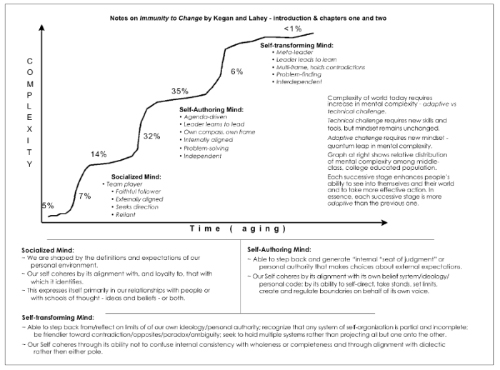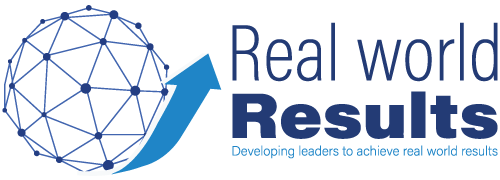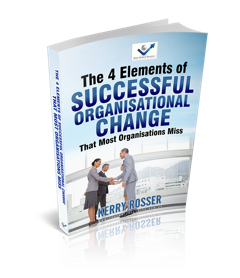As I research topics such as Emotional Intelligence, Resilience and Change Management and others, the more I notice that there are different levels of development across the adult population.
So what constitutes a more developed mind?
Is it Intelligence?
Is it Emotional Intelligence?
Or is it the ability to notice our own thought patterns and the impact those patterns have on our behaviour, sense of well being and adaptability.
According to Kegan and Lahey as well as Jennifer Garvey Berger it is the latter.
About 2 years ago I attended an evening seminar and book launch – the topic being “You are not your Brain” and the author and speaker was the widely acclaimed researcher Jeffery Schwartz.
In many ways the book title caught my attention, however it has been more recently that I have discovered the implications and deeper meaning of the book title.
As adults we have the ability to recognise our thought as just that… thoughts, and a thought does not discern if something is true or helpful. By recognising the thoughts and patterns we inevitably have, we start the process of being able to consider those thoughts in a more objective way.
Kegan and Lahey describe this phenomenon as “Subject–Object”. We have the ability to recognise our own thought patterns and assumptions as something we can analyse and consider in an “Objective way”.
In contrast – many of us become ‘subjected to’ our thoughts and assumptions – they have us rather than us having them.
So when I now think about that book title, it does indeed have more meaning.
There seems to be a number of distinct stages of adult development (see graphic below).

Jennifer Garvey Berger also points out in her book – Changing on the Job – that we do indeed need to be aware of any elitism or judgement when we are considering adult development in ourselves or others. The ideal adult development level is one that is required in that moment to be the best and most effective person we can be in any given situation. A higher level of development that doesn’t match the current situation, could lead to enormous discomfort and conflict when the way people view the world and their perception of control bump up against each other.
And in contrast a lower level of adult development (again not judging- merely observing) may find it challenging to ‘see the world’ in alternate ways – which is often required when climbing the corporate ladder – into senior management roles etc.
Based on the definitions above, Where would you place yourself on this continuum right
now…? Is that different to say, 5 years ago…?
What experiences have you had that have resulted in you seeing the world differently?
When considering your team members – where would you place them on that same continuum?


 Subscribe to our mailing list to unlock the download link for our free e-book The 4 Elements of Successful Organisational Change That Most Organisations Miss.
Subscribe to our mailing list to unlock the download link for our free e-book The 4 Elements of Successful Organisational Change That Most Organisations Miss.